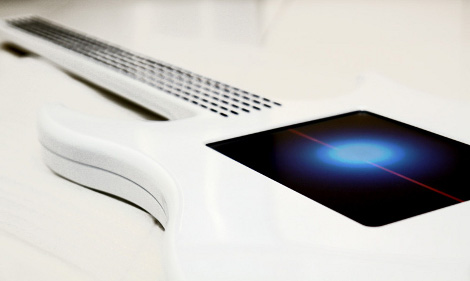
The Misa Digital Guitar is a digital music controller like we haven’t seen before. The body, machined out of ABS, looks like a guitar. The player puts theirs hands in the same places you would on a guitar but the lack of strings make it something different.
The left had manipulates inputs in the form of 144 sensors, six in each of the twenty-four fret positions. The right hand doesn’t strum, but uses a multitouch screen to control the inputs. The UI looks solid, something you’ll have to see for yourself after the break. Tieing this all together is an AMD Geode processor running Gentoo Linux. That means this is open source and begging you to make it do your bidding.
Continue reading “Hey Man, SSH To My Guitar And Setup The Multitouch”















